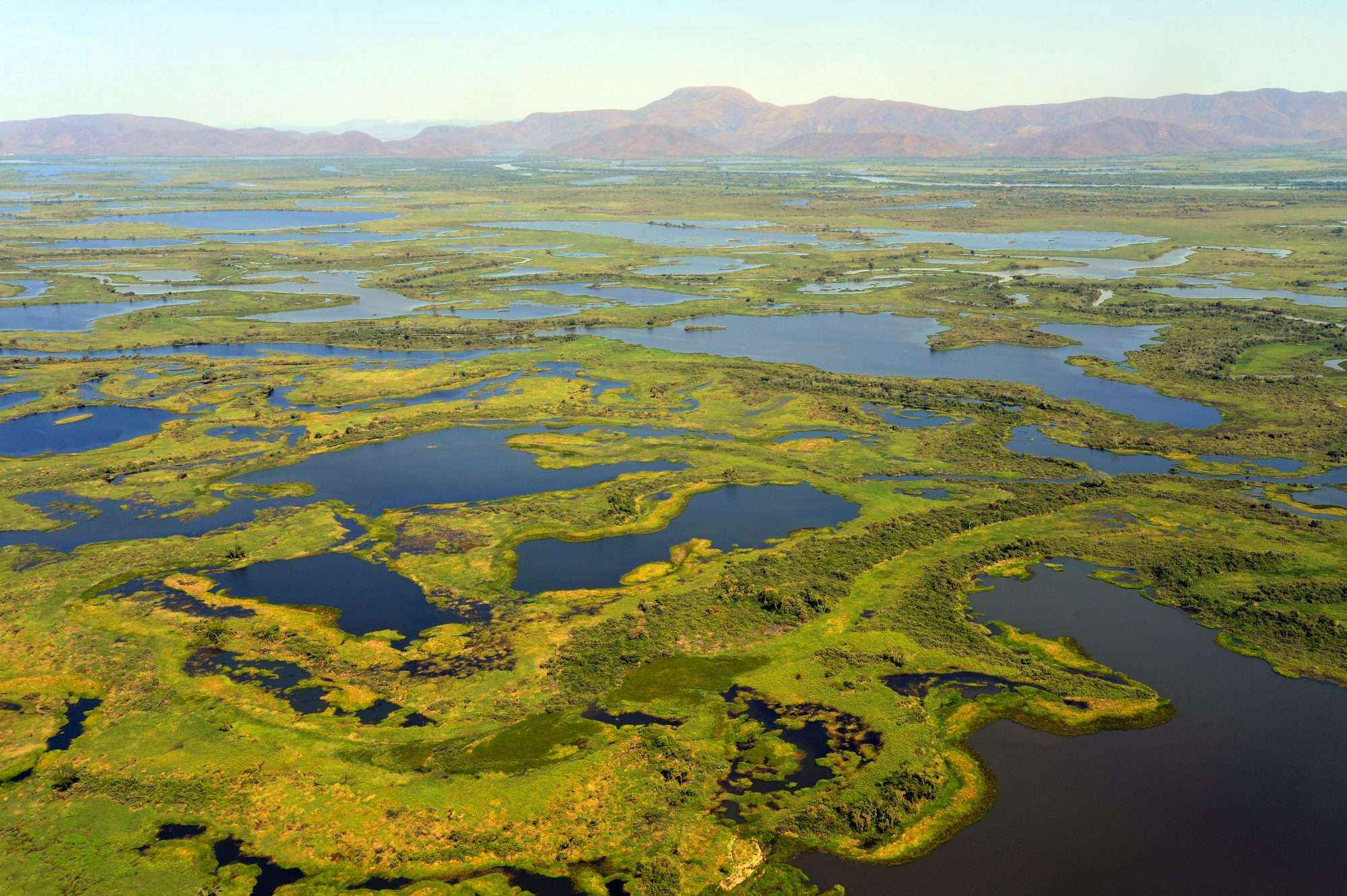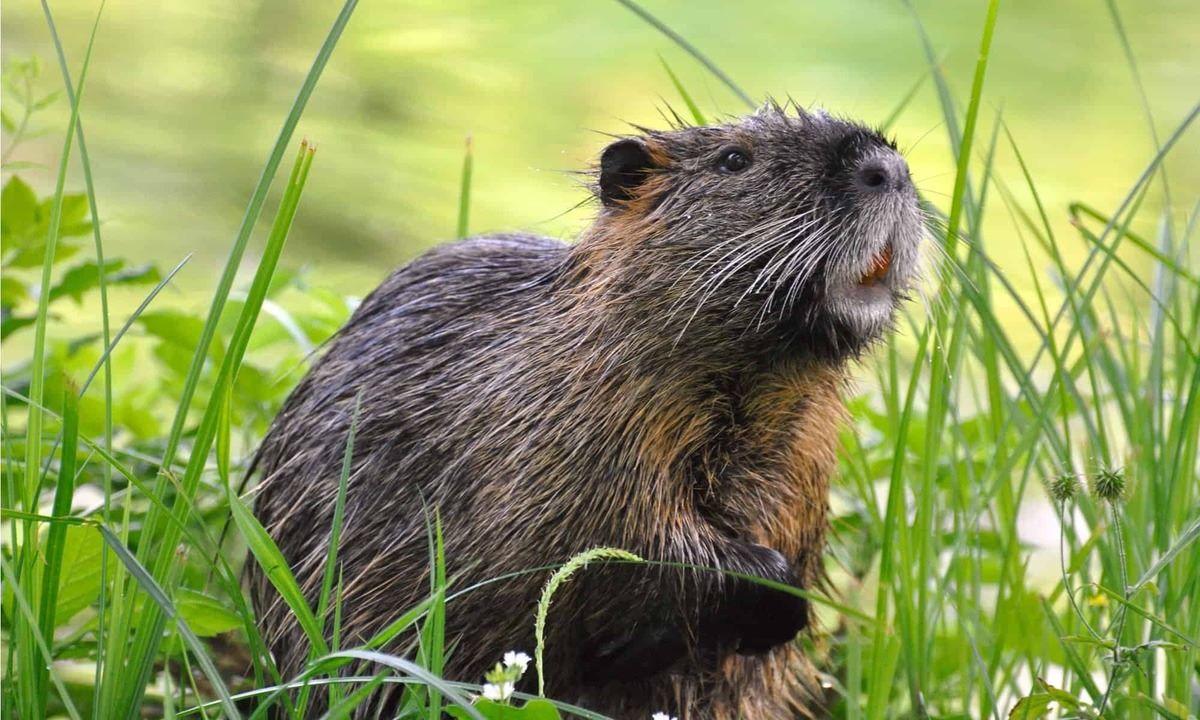
Wetlands are unique ecosystems that play a crucial role in maintaining the health and balance of our planet. These transitional zones between land and water are teeming with life and are a treasure trove of biodiversity. In addition to their ecological significance, wetlands also provide numerous benefits to humans, such as water purification, flood control, and carbon sequestration.
In this article, we will delve into the fascinating world of wetlands and explore some interesting facts about these extraordinary habitats. From their incredible ability to act as natural filters to their role in mitigating climate change, wetlands have a story to tell that goes far beyond the muddy banks and marshy landscapes.
So, strap on your virtual boots, and let’s embark on a journey through the wetlands to discover nine captivating facts that will leave you amazed at the wonders of these remarkable ecosystems.
Key Takeaways:
- Wetlands are vital ecosystems that support diverse wildlife, help control flooding, and purify water. Protecting and restoring wetlands is crucial for the health of our planet and its inhabitants.
- Wetlands provide economic benefits, mitigate climate change, and support indigenous communities. Preserving these diverse ecosystems is essential for biodiversity, water management, and cultural heritage.
The Wetlands Are Vital Ecosystems
Wetlands are crucial ecosystems that provide a wide range of benefits to both the environment and human communities. They act as natural filters, purifying water and removing pollutants. Wetlands also serve as habitats for countless species of plants and animals, supporting biodiversity and maintaining delicate ecological balance. Moreover, they help to control flooding by absorbing excess rainwater and slowly releasing it back into the environment. The preservation and restoration of wetlands are essential for the overall health and sustainability of our planet.
They Can Be Found All Over the World
Wetlands exist in various forms and are found in nearly every corner of the globe. From marshes and swamps to bogs and mangroves, these diverse ecosystems span across different continents and climates. Some of the most famous wetlands include the Florida Everglades in the United States, the Okavango Delta in Botswana, and the Sundarbans in Bangladesh and India. Each wetland has its unique characteristics, contributing to the rich tapestry of global biodiversity.
Wetlands Support a Wide Array of Wildlife
These dynamic environments provide a habitat for a vast array of wildlife, including birds, mammals, reptiles, and amphibians. Wetlands are known for their incredible bird populations, with many migratory birds depending on wetlands as stopover points during their journeys. They also provide breeding grounds for numerous species of fish and amphibians, contributing to the overall ecological balance of the surrounding areas.
Peatlands Store Massive Amounts of Carbon
Peatlands, a type of wetland characterized by the accumulation of peat, act as carbon sinks. They trap and store large amounts of carbon dioxide, a significant greenhouse gas responsible for climate change. Peatlands are a crucial part of the global carbon cycle, helping to regulate our planet’s climate. Protecting and restoring peatlands can play a vital role in mitigating the impacts of climate change.
Wetlands Provide Economic Benefits
Besides their environmental significance, wetlands also provide various economic benefits. They offer opportunities for fishing, farming, and tourism, which contribute to local economies. Wetlands are popular destinations for birdwatching, canoeing, and nature enthusiasts. Additionally, the vegetation found in wetlands can be used for traditional medicine, and many wetland plants have commercial value, providing livelihoods for communities living nearby.
Some Wetlands Are Threatened by Human Activities
Unfortunately, many wetlands are facing significant threats due to human activities. Pollution, urban development, drainage for agriculture, and climate change are just a few of the factors jeopardizing the health and existence of wetlands worldwide. The loss of wetlands not only affects the delicate balance of ecosystems but also disrupts the services they provide, such as water purification and flood control.
Wetlands Help to Mitigate Climate Change
Wetlands contribute to climate change mitigation through natural processes. They absorb and store carbon dioxide through vegetation and peat accumulation, reducing the amount of this greenhouse gas in the atmosphere. Wetlands also act as buffers against extreme weather events by absorbing excess rainwater and reducing the impact of floods. Thus, protecting and conserving wetlands is crucial in our efforts to combat climate change.
Wetlands Support Indigenous and Local Communities
Wetlands are often sacred and culturally significant places for indigenous and local communities. They provide resources such as food, freshwater, and materials for traditional crafts. Many communities rely on wetlands for their livelihoods, including fishing and agriculture. Preserving wetlands not only helps to protect biodiversity but also respects the cultural heritage and rights of these communities.
Wetlands Are Important for Water Management
One of the vital roles of wetlands is water management. They act as natural sponges, soaking up excess rainwater and reducing the risk of flooding in downstream areas. Wetlands also act as filters, removing pollutants and improving water quality. Proper management and conservation of wetlands are essential for ensuring a sustainable and reliable water supply for both ecosystems and human communities.
Conclusion
Wetlands are not only beautiful and diverse ecosystems, but they also provide valuable services to both the environment and humans. From their ability to store carbon dioxide and filter pollutants, to their role in flood prevention and providing habitats for countless species, wetlands are an essential part of our planet’s biodiversity.
By understanding the importance of wetlands and the fascinating facts surrounding them, we can work towards their conservation and protection. It is crucial that we recognize the critical role they play in maintaining our ecological balance and continue to support efforts in preserving and restoring these incredible natural areas.
So, the next time you come across a wetland, take a moment to appreciate its beauty and remember the many remarkable functions it serves for our world.
FAQs
1. What is a wetland?
A wetland is an area of land that is saturated with water either permanently or seasonally. It can include marshes, swamps, bogs, and other similar environments.
2. Why are wetlands important?
Wetlands are important for several reasons. They act as natural water filters, purifying water by trapping pollutants and sediments. They also provide habitats for a wide variety of plant and animal species and contribute to biodiversity. Additionally, wetlands help control flooding, store carbon dioxide, and provide recreational opportunities for humans.
3. Where can wetlands be found?
Wetlands can be found all over the world, ranging from coastal areas to inland regions. They can be found in both freshwater and saltwater environments and are often characterized by their unique vegetation and distinct hydrological features.
4. Can wetlands be restored?
Yes, wetlands can be restored. Restoration efforts involve various techniques, such as reestablishing vegetation, removing invasive species, and restoring natural water flow patterns. These efforts are essential in reviving the ecosystems and functions that wetlands provide.
5. Are wetlands protected?
Many wetlands are protected under national and international laws and regulations. These protections aim to preserve the fragile ecosystems and the important functions they serve. However, there is still a need for ongoing conservation efforts to ensure the long-term survival of wetlands.
Wetlands are truly remarkable habitats, but their importance extends far beyond what we've covered here. Conservation efforts play a crucial role in preserving these valuable ecosystems for future generations. Astonishing facts about wetlands abound, showcasing their incredible diversity and ecological significance. Delving deeper into wetland ecosystems reveals even more mind-boggling truths about these unique environments. So, if you're ready to expand your knowledge and appreciation for wetlands, keep exploring – there's always more to learn!
Was this page helpful?
Our commitment to delivering trustworthy and engaging content is at the heart of what we do. Each fact on our site is contributed by real users like you, bringing a wealth of diverse insights and information. To ensure the highest standards of accuracy and reliability, our dedicated editors meticulously review each submission. This process guarantees that the facts we share are not only fascinating but also credible. Trust in our commitment to quality and authenticity as you explore and learn with us.


